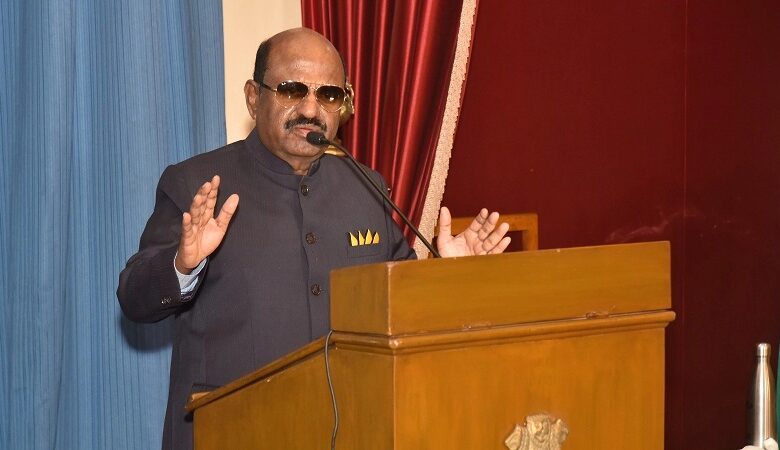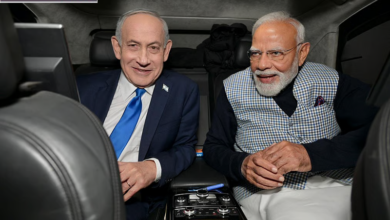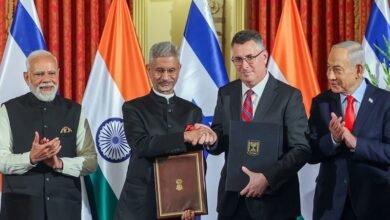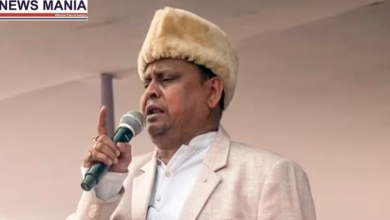West Bengal Governor Launches SPEED Program Amidst Ongoing University Control Dispute

Amid the ongoing power struggle between the West Bengal Governor and the Mamata Banerjee-led government, a significant development unfolded on the 12th of September when Governor CV Ananda Bose launched the SPEED program in West Bengal universities. The acronym SPEED stands for Simplified Procedure for Easy and Effective Decision, and it is aimed at expediting the decision-making process within the state’s university system.
Governor CV Ananda Bose, who also serves as the Chancellor of universities in the state, has initiated several crucial measures to address administrative challenges within the higher education institutions. Among these measures is the establishment of 25 teacher selection committees, as well as the formation of a Vice Chancellor committee. The primary objectives of these committees are to identify and rectify the existing backlog in university administration and to provide recommendations for the enhancement and revitalization of the state’s university system. Additionally, a Real-time Monitoring Cell has been established in the Raj Bhavan to enable continuous evaluation and oversight.
The launch of the SPEED program and the subsequent administrative reforms come at a time when tensions between Governor Ananda Bose and the Trinamool Congress government have escalated concerning control over the state’s universities.
The recent confrontation reached a new level of intensity when Bratya Basu, the state’s education minister, referred to the Governor as the ‘new vampire in town.’ In response, Governor Ananda Bose took swift action by dispatching two letters—one addressed to Chief Minister Mamata Banerjee and another to Delhi—in what has been described as a ‘midnight action.’
Both the Governor and Chief Minister Banerjee have thus far chosen to keep the contents of these letters confidential, adding to the intrigue surrounding their ongoing dispute.
One of the key decisions by the Governor that has further fuelled the disagreement with the government is his move to establish selection committees for appointing Vice Chancellors in multiple universities across the state. This decision has attracted severe criticism from the state government, deepening the divide between the two entities.
The SPEED program’s launch reflects an earnest attempt by Governor Ananda Bose to streamline and enhance the efficiency of decision-making processes within West Bengal’s university system. This initiative comes in response to concerns over administrative delays and inefficiencies that have plagued the higher education sector.
The establishment of teacher selection committees and the Vice Chancellor committee is particularly significant. These committees are expected to play a pivotal role in identifying bottlenecks and proposing comprehensive solutions to modernize the state’s university administration. By addressing these long-standing challenges, Governor Ananda Bose hopes to bring about a positive transformation in the higher education landscape of West Bengal.
The decision to create a Real-time Monitoring Cell within the Raj Bhavan is another noteworthy aspect of the reform package. This cell will facilitate ongoing oversight, allowing for prompt intervention and course correction as needed. The emphasis on real-time monitoring reflects a commitment to ensuring that the reforms are implemented effectively and that the desired outcomes are achieved.
However, it is essential to consider this initiative within the broader context of the ongoing power struggle between the Governor and the state government. The dispute over control of universities has become a focal point of contention, with both sides vehemently asserting their authority.The state education minister’s unflattering characterization of the Governor as the ‘new vampire in town’ underscores the acrimony that has characterized their relationship. Such language is indicative of the heightened emotions surrounding this issue and the deep-seated differences between the two camps.The Governor’s decision to send letters to both Chief Minister Mamata Banerjee and the central government has only intensified the standoff. The contents of these letters remain a closely guarded secret, leaving the public and political observers speculating about their content and potential implications.
In particular, the establishment of selection committees for the appointment of Vice Chancellors has become a point of contention. The state government’s criticism of this move raises questions about the division of authority and control over the state’s universities. It also raises concerns about the potential politicization of university appointments, which could impact the autonomy and academic integrity of these institutions.
News Mania Desk / Agnibeena Ghosh 13th September 2023






